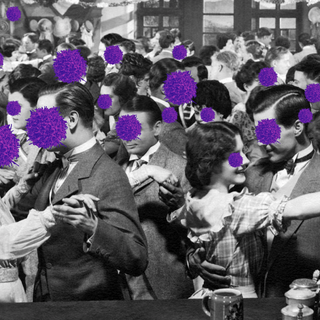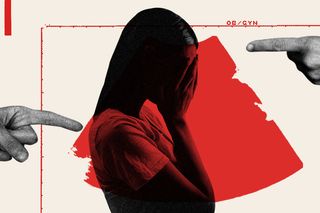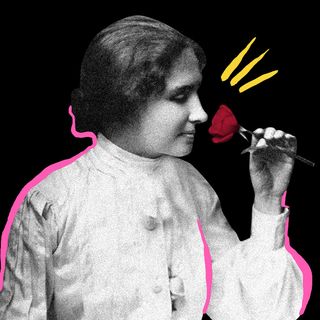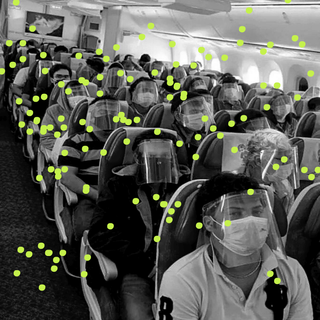
How Do Women Heal From Miscarriage, If Society Won’t Let Them Talk About It?
Misinformation that blames women for pregnancy loss leaves them with a self-doubt that can slow their recovery.

In a viral video, Jyoti, a Youtuber who goes by SuperPrincessjo, opened up about a health condition to which many Indian women could relate: miscarriage. In her narration, she explains that she underwent a missed miscarriage, a type of pregnancy loss in which the body continues to experience symptoms of pregnancy even after the fetus is no longer alive.
She adds, “Being a science student, being a woman — I had never heard of this word. I didn’t know what it meant, missed miscarriage.”
Swagata Majumdar, who has coped with three different types of miscarriages, had also never heard of what caused her first miscarriage — a blighted ovum. “After my first miscarriage, I was told it was my lifestyle, my work stress, my weight, my inability to carry that has caused it. Then I read up about blighted ovum and realized it was not my fault.”
Kavita Nehemiah, who, alongside Majumdar, runs one of the few Indian online support groups for women who have experienced pregnancy loss,recalls how she had to use online resources to infer she’d suffered a missed miscarriage. Nehemiah also remembers being unprepared for the possibility of a miscarriage. “I knew miscarriages were very common, but like with any adverse outcome, I never thought it would happen to me. I thought that since I was fit, active, healthy, and young that I wouldn’t be the one in four. But I know now that miscarriages happen across the board to younger, older, fit, unfit, healthy, unhealthy women.”
While there may be different types of miscarriage, no one knows the precise underlying cause. Medical consensus holds that it is the natural response when genetic material hasn’t quite zipped together correctly. What’s certain is that every single pregnancy is at risk of a miscarriage, and none of those problems are caused by either parent.
Yet, miscarriage is shrouded in silence, misinformation, blame, and superstition due to a magnified focus on having a successful pregnancy that transitions into motherhood. This lack of transparency leads to several difficulties, ranging from grieving women blaming themselves for their loss to dangerous infections caused by lack of adequate care.
A shrouded conversation
Majumdar underwent pre-pregnancy counseling, but it did not prepare her for the miscarriage or the grief and self-doubt that followed. “It is very sad that in pre-pregnancy counseling, women are not told about the risks and perils of conceiving. They are only shown the happy picture. I think a lot of miscarriages can be prevented if women understood the early signs.”
Indian women face unusual risks of miscarriage — a 2015 study from the Journal of Obstetrics and Gynecology of India states that Indian women’s recurring miscarriage rates are significantly higher than the global average. The silence and stigma of miscarriage is innate to the subcontinent. The glorification of motherhood in Indian society goes all the way back to an ancient, feudal era, in which women were considered equivalent to land. As renowned Indologist Sukumari Bhattacharji notes in her paper, Motherhood in Ancient India, “Motherhood … came to be glorified as compensation for an imposed reality in which women merely gratified society’s preference for male progeny. … all that was permitted to the mother were acts of self-sacrifice… for the well-being of the father and son.”
Related on The Swaddle:
Mental Health Struggles Are Common After Miscarriage, but Women Get Little to No Support
Miscarriage, in those times, was a mark of evil spirits destroying the fetus, and many rituals were devised to drive such spirits away. Awkwardly derived versions of these traditional beliefs still exist in tandem with misinformation that seeks to place blame on women’s bodies for their perceived infertility. These range from astrological chart combinations that make an individual susceptible to miscarriage to myths like spicy foods or lifting something heavy causing spontaneous abortions, to not allowing pregnant women from the same family to meet each other in order to prevent pregnancy loss. Majumdar says she was once even told taking an auto-rickshaw would cause a miscarriage. Often, these myths are perpetuated by family and friends, who resort to intrusive questioning and commentary, fuelling the stigma against the woman coping with a miscarriage.
“I recall some instances that I witnessed during my childhood in a remote village of one of the most backward districts of our country — which happens even today. Elderly women will remind the woman who had had a miscarriage [or] abortion that she must have done something wrong in her previous birth and this is the way God has chosen to punish her,” says Usha Ram, a maternal and reproductive health researcher and professor at the International Institute of Population Sciences. “The women would be reminded repeatedly that this is a buri aatma ka saaya (shadow of an evil soul) and because of this she is failing to give birth to a child. Not only does it take away the confidence of these women but [it] makes them more and more vulnerable to exploitations of varied types, in homes as well as outside homes.”
Ram adds, “The reproductive lives of Indian women are majorly governed and controlled by several taboos and stigma associated with them. Regardless of reason, it is the woman who has to bear all adverse consequences [of miscarriage] — sometimes to the extent they become the reason for the dissolution of marital union, living with a second wife, or even ending one’s life.”
Damage to physical and mental health
Social norms influence both stigma and women’s awareness and control over treatment plans, and the lack of both may cause more immediate physical dangers. Dr. Suchitra Dalvie, the coordinator for the Asia Safe Abortion Partnership, highlights how women find it difficult to keep up with follow-up treatments after miscarriage, a major function of postnatal/complication-related care. “Women in India have several household responsibilities that they cannot leave behind for several hospital visits. Plus, they’d also require money, and family permissions to visit the doctors. Plus, there are also several conditions at home that may prevent recovery. For example, doctors recommend that women abstain from sex till their next period after the miscarriage. However, many women may not be able to say no to their male partners or husbands,” Dr. Dalvie explains.
Delays in post-miscarriage treatment are in fact significantly influenced by women’s lack of agency over their own reproductive health care. Research published in the International Journal of Childbirth states, “In India, social norms prescribe traditional home births and health care decision making by the husband or in-laws. When complications are noted, treatment delays occur because of absence of the required decision-makers, economic concerns (both financial and the loss of productivity for all involved), the shame of pregnancy, facilities that are inadequately supplied or staffed, difficult access to a facility, or mistrust of government services.”
Related on The Swaddle:
Know Your Rights: Miscarriage Leave in India
Apart from a lack of agency, there is also a lack of access to allopathic medical care. Ram adds, “Lack of decision-making coupled with lack of access to health care services due to inadequate, poor and heavily overburdened health infrastructure has resulted in poor health outcomes for women. A significant proportion of our population, including women, are still dependent on the service providers in the traditional, informal sector that includes vaidus and jhhadfook walas (quacks).” This reliance, according to Dr. Dalvie, is because traditional healers have four advantages: the longstanding trust of the community, relatively inexpensive services, confidentiality, and ease of access in remote areas. These traditional healers then play a part in furthering stigma and misinformation around miscarriages.
The case for using allopathic medicine isn’t helped by the frequent lack of sensitivity from the medical fraternity, however. Nehemiah recounts, “Before disclosing to me that we had lost the baby, my radiologist asked me a series of questions like — did you travel recently, did you lift something heavy, et cetera. My OB/GYN later assured me that none of these things can lead to a miscarriage, but I still felt immense guilt for a long time after.”
Her experience isn’t unique, as several women in India and around the world face discrimination and bias from the medical fraternity on issues ranging from disregarding pain to denying abortions. “There are certain things that Indian hospitals can do better. For example, after my D&C, [dilation and curettage — a procedure to remove tissue from inside your uterus], I was admitted in a room in the labor ward and all night I could hear the cries of women going into labor,” Nehemiah says. “That was brutal.”
Although maternal and reproductive health is an issue the Indian government attempts to take seriously, with schemes like the National Health Mission’s Janani Suraksha Yojana, its efforts are more focused on ensuring institutional deliveries rather than preparing to deal with prenatal complications. “Women who prefer alternative medicine will also approach allopathic care in situations of emergency,” says Adsa Fatima, who works with the Sama Resource Group for Women and Health. “But, even if they do reach the hospital, there’s no guarantee of care because there’s a severe shortage of facilities, doctors and human resources that can help deal with a complication like a miscarriage.”
A lack of focus on complications like miscarriage is a part of a larger phenomenon of bias that perceives pregnant women as secondary to their unborn child — a bias that stokes the same stigma that fuels the inadequate care given to women who suffer prenatal complications. Though there are several social determinants that allow misinformation about miscarriage to proliferate, all of these reasons are tied together by the heteropatriarchal contexts they exist in, highlighting how gender roles play a critical part in determining good or ill health.
“It is important to problematize the word ‘miscarriage’ itself as it still perpetuates stigma,” adds Fatima, “The term denotes the woman as a carrier of a fetus and nothing more. But that’s not true — she should be cared for, and her well-being should be put at the center.”
Related on The Swaddle:
Aditi Murti is a culture writer at The Swaddle. Previously, she worked as a freelance journalist focused on gender and cities. Find her on social media @aditimurti.
Related


Why Scents Evoke Such Strong Memories
